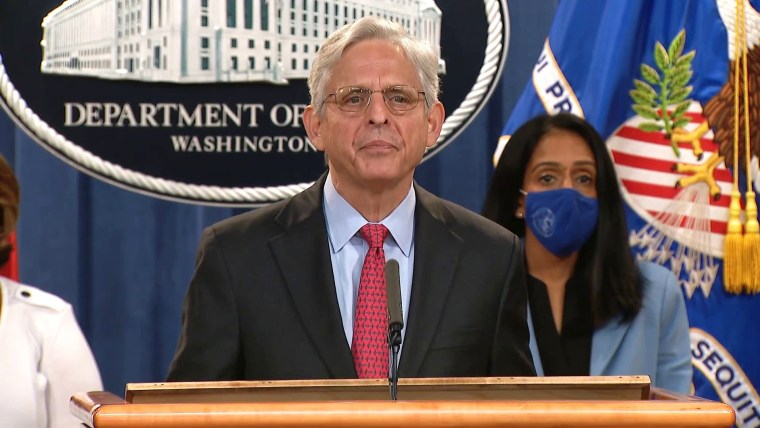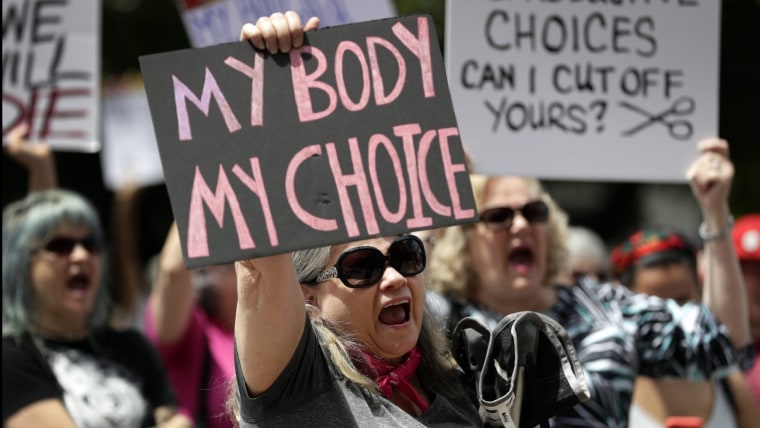When the U.S. Supreme Court this month declined to block a restrictive Texas law banning abortion after about six weeks into a pregnancy, abortion rights campaigners across Europe watched with dismay.
Anti-abortion campaigners, however, were taking notes.
Abortion is available on demand to more than 95 percent of girls and women of reproductive age in Europe, according to the Center for Reproductive Rights — from Greece to the United Kingdom, which allows abortions up to 24 weeks and beyond in rare cases. France moved last week to offer free contraception to girls and women under 25, in a sign of the continent’s generally liberal approach.
But divides and de facto limits remain, with Poland recently moving in the opposite direction. Some countries have a near or total ban, and activists who are calling for more restrictive laws, or to keep existing ones, say the Texas ruling offers inspiration.
Some campaigners in these places want to emulate the decision in Texas — while some want to go much further.
“What happened in America is great news as far as we’re concerned but we obviously want more than that,” Ivan Grech-Mintoff, an anti-abortion campaigner in Malta and a former euroskeptic candidate for the European Parliament, told NBC News.
“We feel the tide is turning when it comes to abortion,” he said.
Abortion is entirely illegal — in all circumstances — in the picturesque Mediterranean island nation, which is fervently Catholic.
Just like in Texas, the stakes are high for would-be abortion providers in Malta.
Download the NBC News app for breaking news and politics
Performing an abortion or administering a medical abortion on the island is a criminal offense punishable by up to three years in jail. This law remains unchanged since the 19th century, although prosecutions are rare.
An independent lawmaker’s bill to decriminalize abortion was blocked in Parliament and Malta is heading into an upcoming general election with both main political parties firmly anti-abortion.
As is often the case in countries with stringent rules, some Maltese women seek abortion abroad in countries with more liberal rules such as Italy, the U.K. or the Netherlands.
The nonprofit group Doctors for Choice Malta, which campaigns for better access to abortion services, estimates that at least 300 Maltese women have an abortion each year. One-third of them travel abroad while the rest use abortion pills.
For abortion rights activists in the country, the Texas ruling was a sober reminder of how far their campaign has to go.
“It’s an opportunity to see how things are being framed and think about what we can learn from it — what we should be wary of, is there anything we should be working on?” said Mina Tolu, who also campaigns on LGBT issues and is the international coordinator of Malta’s Green Party.
“In terms of Malta, the law here is worse than that, so it’s a reminder that just as rights can be granted they can be taken away,” they added.
The chances of a change anytime soon are slim — opinion polls show strong support for the status quo — but Tolu is convinced change is on the way some day:
“It’s impossible to put a time stamp on it but it will happen for sure, definitely.”
Maltese women are not alone.
The mountainous microstates of Andorra and San Marino are the only other countries in Europe with a complete ban, although San Marino is set to hold a referendum later this month on allowing abortion up to 12 weeks.
Similarly small Liechtenstein and the city state of Monaco also have restrictive laws and don’t offer abortion on demand.
In Poland, a strongly Catholic country of around 38 million, abortion is now illegal in almost every instance — permissible only to preserve the life of a woman.
“There are places in the world that have more severe restrictions on abortion than Texas,” says Mara Clarke, the founder of Abortion Support Network, a small U.K.-based charity that offers funding and accommodation to women forced to travel to other countries for abortions.
“Poland just made its already superdraconian law even worse, where they made abortion for fetal abnormality unconstitutional. To put that into context, there were 1,000 to 2,000 legal abortions there every year and 98 percent of them were for indications of fetal abnormality. So that’s really, really bad.”
Tens of thousands took to the streets across the country last year to protest the change, in perhaps the biggest show of public anger since the fall of communism.
Abortion rights campaigners argue it will mean fit and healthy women who want a baby being forced to give birth to children with profound mental and physical disabilities.
Clarke points out that while women do travel abroad for abortions, it can be a struggle to find doctors willing to carry out an abortion or prescribe pills. The practice is legal in traditionally Catholic Italy, but official statistics show that 69 percent of gynecologists there refuse to offer abortion services, citing an Italian law that allows doctors to opt out on moral grounds.
Pope Francis has shown little sign of shifting on the subject. Speaking to reporters on his plane Wednesday while returning from a trip to Slovakia, he said that “Abortion is murder,” even soon after conception. “Those who carry out abortions kill,” he added.
‘Protecting the nation’
Beyond the traditional pull of religion, more recent political shifts have also helped drive changes in abortion access across the continent.
Poland’s ruling Law and Justice Party, described by political scientists as a far-right populist party, was pressured into the harsh 2020 abortion law change by ultraconservative parties and campaign groups, according to Carolin Heilig, an expert in Eastern European politics at University College London.
She describes the anti-abortion lobby there as a part of a “very mobilized, internationally connected movement.”
“There are ultraconservative groups that are linked to the Russian Orthodox Church and evangelists in the U.S. They play a huge role,” she said.
Nationalist politics, which have thrived in Poland in recent years, are part of why abortion is considered so taboo.
“It is interlinked, [abortion] and the question of protecting the nation,” Heilig said.
Poland is a secularizing country however, Heilig points out, with opinion polls showing only 10 percent of people support a complete abortion ban. The campaign for liberalization could gain ground, she said, if the issue was framed as a question of protecting women’s health — a tactic that won over voters in Ireland, including practicing Catholics.
Ireland legalized abortion up to 12 weeks in a historic 2018 referendum — a momentous decision that was unthinkable a generation ago.
Abortion is now legal in Northern Ireland too after strict laws were removed in 2019. While Northern Ireland is part of the United Kingdom, it had separate rules to England, Wales and Scotland on abortion. This is no longer the case, to the chagrin of anti-abortion and Christian groups.
And like their counterparts in Malta, for Irish anti-abortion activists the Texas approach would not be enough.
“We wouldn’t be content with the incremental approach — we want total repeal,” says Bernadette Smyth, founder of the Precious Life campaign group, based in Belfast, Northern Ireland. In 2014, she was convicted of harassing the director of a Belfast clinic that offers abortion services, but the conviction was overturned after a successful appeal in 2015.
“I do think America is leading the way in terms of state by state legislation, so I think there’s an ignited fire within the U.S. that the rest of Europe should look to.”
CORRECTION: (Sept. 17, 2021, 7:33 a.m. ET): A previous version of this article stated that Bernadette Smyth was convicted of harassment in 2014 without mentioning that she subsequently won her appeal against the conviction at Belfast. The article has been updated.











Recent Comments